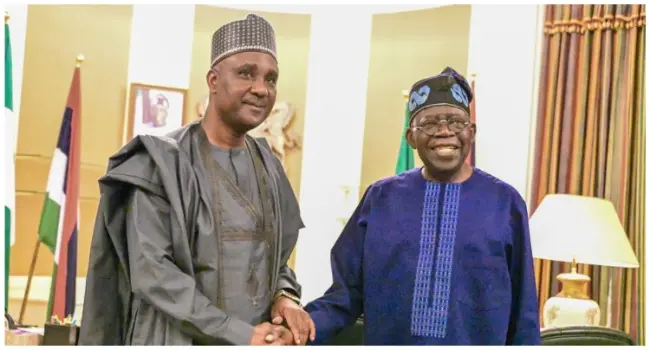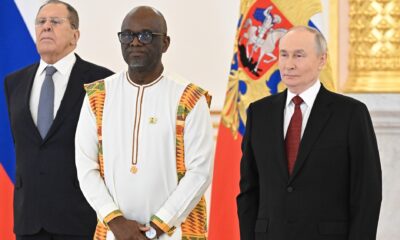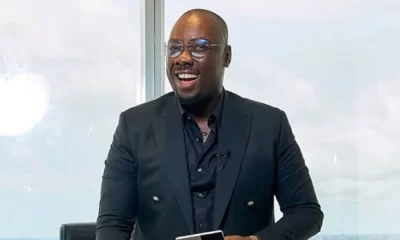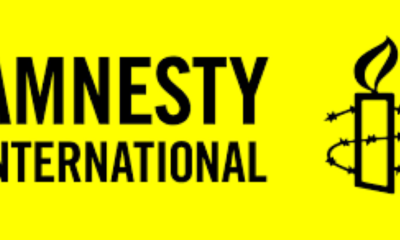Breaking News
Speaker Abbas, Opposition Parties Clash Over Tinubu’s ‘Responsible Borrowing’
House Speaker Abbas Tajudeen backs Tinubu’s ‘responsible borrowing’ for growth, but PDP and ADC condemn Nigeria’s rising N149.39 trillion debt, warning of hardship, higher taxes, and weak institutions.

Speaker of the House of Representatives, Abbas Tajudeen, has defended President Bola Tinubu’s borrowing strategy, describing it as “responsible” and aligned with the Renewed Hope Agenda, even as the Peoples Democratic Party (PDP) and African Democratic Congress (ADC) strongly disagreed.
Abbas, speaking at the 11th Annual Conference and General Assembly of the West Africa Association of Public Accounts Committees (WAAPAC) in Abuja, said public debt, when prudently managed, could drive growth and prosperity.
“Indeed, public debt, when managed prudently, can be a tool for growth and prosperity. Yet, when left unchecked, it becomes a burden that erodes economic stability and threatens the welfare of future generations,” he said.
Represented by House Leader, Prof. Julius Ihonvbere, Abbas called for stricter oversight, transparent borrowing practices, and stronger legislative scrutiny to ensure every naira borrowed delivers tangible economic and social returns.
He highlighted the continent’s debt crisis, noting that Africa’s public debt hit $1.8 trillion by 2022, with external debt projected to exceed $1 trillion by 2023. He warned that several African nations—including Sudan, Ghana, Kenya, and South Africa—were already in dangerous debt-to-GDP territory, spending more on debt servicing than on essential services.
Abbas also pointed to Nigeria’s worsening debt trajectory. “As of the first quarter of 2025, total public debt stood at N149.39 trillion ($97 billion), with domestic borrowing at 53 per cent and external at 47 per cent. This marks a sharp rise from N121.7 trillion the previous year. The debt-to-GDP ratio now stands at roughly 52 per cent, well above the statutory ceiling of 40 per cent,” he stated.
He argued that Africa must negotiate fairer borrowing terms and rethink its dependence on external financing, while strengthening institutional oversight.
ADC’s Reaction
The ADC, however, blamed the APC-led government for plunging the country into a debt crisis, describing the borrowing as reckless and unsustainable.
Its Deputy National Publicity Secretary, Jackie Wayas, said: “ADC has consistently warned Nigerians about the ruinous path of the APC’s unbridled borrowing and wasteful spending. We cautioned that no nation can survive with such recklessness. These loans, taken without strategic investment or accountability, will only saddle generations with unbearable hardship. Today, those warnings are manifesting before our very eyes.”
She warned that the rising debt burden would fuel higher taxes, inflation, unemployment, and deteriorating public services. “N149.39 trillion in just the first quarter of 2025. Who will repay these loans? The ordinary Nigerian people,” Wayas added.
PDP’s Position
The PDP on its part stressed the need for strong institutions rather than “strong men,” warning that without an independent legislature, fiscal discipline would remain elusive.
PDP’s Deputy National Youth Leader, Timothy Osadolor, said: “When next we elect officers of the National Assembly, we must insist they choose their own leaders, rather than being hand-picked from the Villa. That way, they will have the courage to do what is right.”
He added that while Nigeria has numerous regulatory and procurement agencies, most have failed to live up to their mandates. “What we need are men of character with fiscal discipline and the moral fibre to say yes when necessary and no when necessary,” he said, recalling the strict financial oversight under former Senate President Bukola Saraki.










